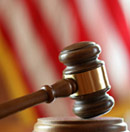|
|
|
Blackwater under fire in U.S. Congress
Breaking Legal News |
2007/10/02 06:15
|
U.S. security contractor Blackwater, under investigation over deadly incidents in Iraq, defended its role there on Tuesday, but lawmakers took aim at the company's actions in a Sept. 16 shooting in which 11 Iraqis were killed. Blackwater founder and former Navy SEAL Erik Prince said in in testimony prepared for the House of Representatives Committee on Oversight and Government Reform that his staff acted "appropriately" on that day in a very complex war zone.
"There has been a rush to judgment based on inaccurate information, and many public reports have wrongly pronounced Blackwater's guilt for the deaths of varying numbers of civilians," Prince said in the testimony.
"Congress should not accept these allegations as truth until it has the facts," added Prince.
Iraq's government has been strongly critical of Blackwater and has called the shooting incident a crime.
Committee chairman Henry Waxman, a California Democrat, said there were serious questions about Blackwater's performance and that the Sept. 16 shooting was just the latest in a number of "troubling" incidents.
"Is Blackwater, a private military contractor, helping or hurting our efforts in Iraq," Waxman asked in his opening statement.
"Blackwater will be accountable," he added.
Blackwater, which has received U.S. government contracts worth more than a billion dollars since 2001, is under intense scrutiny over its security work in Iraq, where Prince said the North Carolina firm had about 1,000 personnel.
The hearing comes amid growing questions over the role of private contractors in Iraq and whether the U.S. government relies too heavily on outsiders to perform jobs traditionally done by the military. |
|
|
|
|
|
|
US Supreme Court begins new term
Breaking Legal News |
2007/10/01 07:53
|
The US Supreme Court begins a new term Monday, which usually remains in session from October through June, has already accepted to review a complaint lodged on behalf of detainees held at the US naval base at Guantanamo Bay, Cuba. The case may prompt justices to rule whether the constitution applies to the military outpost set up to hold terror suspects.
The court may also be asked to rule on whether former attorney general John Ashcroft can be personally held liable for excesses in arresting scores of foreigners immediately after the September 11, 2001, attacks.
Its last term was marked by a series of conservative rulings on social issues including abortion and freedom of speech relating to political campaigning.
But in the divided court, which has five conservatives and four progressive justices, major decisions in the new session could depend on Justice Anthony Kennedy -- the most pragmatic of the conservatives -- who this year may find reasons to switch camps on some cases.
The court also will have to rule on a series of other issues that might figure prominently during the election campaign.
The justices have already chosen to consider if executions by lethal injection are constitutional, if a child pornography law infringed upon the constitutional right to free expression, and if prison sentences for trafficking in crack cocaine were excessive.
The court also will examine if child rapists who did not kill their victims can be sentenced to death.
In early September, the city of Washington, DC asked the high court to rule for the first time in nearly 70 years on the Second Amendment to the constitution, which is viewed by some as a guarantee of the right of every American to own a firearm. |
|
|
|
|
|
|
Michigan Lawmakers Try to Avoid Shutdown
Breaking Legal News |
2007/09/30 11:16
|
| Lawmakers trying to avoid a partial government shutdown were taking a short break early Sunday from brokering deals on tax increases and other measures aimed at plugging a budget deficit. The Legislature is tasked with erasing a $1.75 billion deficit in the fiscal year that begins Monday. Some cost-cutting moves and government restructuring proposals had started to advance through the Legislature and could be wrapped up later Sunday. One proposal approved 21-17 by the Republican-led Senate would aim to save money by changing how health insurance benefits for teachers and government workers are managed. The measure, now headed to the Democrat-led House, is key to the overall budget deal because it could be a trade-off to get Republicans to vote for tax increases. The House passed bills to create incentives for Medicaid recipients to lead healthy lifestyles, among other reforms, which now are headed to the Senate. Democratic Gov. Jennifer Granholm has told about 35,000 of the state's more than 53,000 workers not to report to work on Monday if a shutdown occurs. The remaining workers, mostly related to public health and safety, would stay on the job. A partial state shutdown would mean most government operations would cease, including liquor deliveries, lottery ticket sales, the issuance of driver's licenses and construction on state roads. Republicans have pushed Granholm to accept a temporary budget that would extend the one currently in place, giving legislators more time to craft a long term deal. Granholm has said she won't sign a temporary budget unless she has assurances higher taxes to pay for education, public health and other programs are part of the deal. Leaders in both the Democrat-led House and Republican-controlled Senate are optimistic a deal will be reached to avoid a shutdown. |
|
|
|
|
|
|
FDIC Shuts Down NetBank Due to Defaults
Breaking Legal News |
2007/09/28 16:24
|
| NetBank Inc., an online bank with $2.5 billion in assets, was shut down by the government on Friday because of an excessive level of mortgage defaults. It was the largest savings and loan failure since the tail end of the industry's crisis more than 14 years ago. Federal regulators appointed the Federal Deposit Insurance Corp. as a receiver for Alpharetta, Ga.-based NetBank. Customers with less than $100,000 deposited with NetBank will be protected by FDIC insurance. While dozens of mortgage companies have closed due to soaring defaults of home loans made to borrowers with weak, or subprime, credit, those problems previously had occurred among non-bank lenders such as New Century Financial Corp. NetBank, in contrast, is federally regulated. Loose mortgage standards in recent years - especially among lenders catering to subprime borrowers - have resulted in a spike in home loan defaults. Bert Ely, a banking consultant based in Alexandria, Va., said NetBank was in "deep trouble" before the subprime mortgage market's woes accelerated this year. Regulators, he said, "should have closed it a long time ago." While some Internet-only banks are successful, he said, operating one without retail branches can be a difficult strategy to maintain. |
|
|
|
|
|
|
Freddie Mac, SEC settle accounting fraud charges
Breaking Legal News |
2007/09/28 07:57
|
| Giant mortgage-buyer Freddie Mac will pay a $50 million fine to securities regulators to settle charges it manipulated earnings for three years, the Securities and Exchange Commission said Thursday. Four former Freddie executives will also pay nearly $800,000 in penalties, the SEC said. Neither the company nor the executives admitted or denied the U.S. allegations. The SEC's complaint says Freddie Mac misreported its net income in 2000, 2001 and 2002. In a press release, the SEC said the company improperly managed earnings beginning as early as 1998. "Freddie Mac's departure from proper accounting practices was the result of a corporate culture that sought stable earnings growth at any cost," said Linda Thomsen, the SEC's enforcement director, in a statement. The SEC said it expects to distribute the penalty money to investors. Freddie Mac has taken a number of steps to bolster its accounting practices. On Thursday, Freddie's chief executive, Richard Syron, said the agreement resolves the last investigation related to its earnings restatement. "This is another milestone enabling us to focus entirely on those things that are most important -- further advancing our housing mission, effectively serving our customers and building our business for the future," Syron said.
|
|
|
|
|
|
|
'Jena 6' teen Mychal Bell freed on bail
Breaking Legal News |
2007/09/28 07:43
|
| Mychal Bell walked out of jail yesterday, a week after a huge civil rights march demanding his freedom, but the prosecutor worsened racial tensions by declaring that Jesus saved the town from protestors. "Had it not been for the direct intervention of the Lord Jesus Christ last Thursday, a disaster would have happened," District Attorney Reed Walters said. "You can quote me on that." Walters spoke just before Bell, 17, was freed on $45,000 bail after spending 10 months in jail for beating a white classmate. "He goes home because a lot of people left their home and stood up for him," said the Rev. Al Sharpton, referring to the Sept.20 march. "We do not condone violence of any kind. ... Upon this young man's shoulders is a movement for fairness." His parents at his side, Bell, who did not speak, walked out of the LaSalle Parish courthouse, flanked also by Martin Luther King 3rd and Sharpton, who recently supplanted less media-savvy local activists to become Bell's spokesman. An all-white jury convicted Bell after his court-appointed lawyer failed to question any witnesses. The conviction was thrown out this month when an appeals court said he should not have been tried as an adult. Walters, who is being accused of treating black offenders more harshly than white ones, said he decided not to appeal the ruling. He said he would retry the case in juvenile court as soon as possible. "I believe that it is in the best interest of the victim and his family not to delay this matter any further," he said. Walters charged Bell and five black friends - known as the Jena 6 - with attempted murder last year for punching and stomping white classmate Justin Barker after a series of ugly racial incidents in town. Walters later reduced the charge to aggravated battery, which could still put the teens in prison for 20 years. |
|
|
|
|
|
|
Ban on E-Verify program leads to lawsuit for state
Breaking Legal News |
2007/09/25 10:09
|
| The U.S. Department of Homeland Security is suing Illinois government in an attempt to block the state's ban on a program that verifies whether a job applicant is eligible to work in the country. In a complaint filed Monday in the U.S. District Court in Springfield, the Department of Homeland Security alleges federal law pre-empts an Aug. 13 amendment to the state's Right to Privacy in the Workplace Act that forbids employers from using the department's E-Verify program, also known as Basic Pilot. "With the Illinois Act, the state ... is attempting to indirectly regulate the U.S. government by imposing state standards on a federal program that must be satisfied before Illinois employers are permitted to enroll," the 12-page complaint states. "Congress also made it clear its objective and purpose to encourage broad participation in the Basic Pilot Program by instructing DHS to expand the program to all 50 states." The suit asks for the state law to be declared invalid and seeks an injunction on the ban. Employers using the program submit job applicants' identification information into Social Security Administration and Homeland Security databases on the Internet to confirm their work eligibility. In most cases, the check takes a few seconds, according to Homeland Security. If the program cannot confirm the work eligibility of an applicant, it issues a "tentative nonconfirmation" notice that can take days or weeks to resolve. Supporters say the program helps employers keep illegal immigrants off employee rolls, but critics note it has an accuracy rate of between 80 percent and 95 percent, which they say marks it as too unreliable and results in some applicants being wrongly dismissed. The Illinois ban was to remain in effect until the program results were 99 percent accurate. The ban also exempts employers who undergo training in the program and receive "anti-discrimination notices" from the U.S. Department of Justice and Illinois Department of Human Rights. About 750 Illinois businesses used E-Verify before the ban took effect, according to the complaint. The Illinois Coalition of Immigrant and Refugee Rights, a Chicago-based advocacy group, said they thought Homeland Security was wrong in considering the voluntary E-Verify program a federal mandate. "The verification program is voluntary for nearly all private employers; they are not required to participate in these verification programs to begin with," the statement reads. "The law does not interfere with any federal obligation because for most employers no such obligation exists." But the department's actions may already have had an effect, as some state lawmakers started backing away from the amendment after learning of the lawsuit. "We should take a second look at that bill," said Rep. Ruth Munson, R-Elgin, who was one of 76 state House members who voted to pass the amendment in April. "If DHS thinks it's an important tool, the state ought to step back and look at what it does. Maybe the law needs to be repealed or changed." |
|
|
|
|
|
|
Class action or a representative action is a form of lawsuit in which a large group of people collectively bring a claim to court and/or in which a class of defendants is being sued. This form of collective lawsuit originated in the United States and is still predominantly a U.S. phenomenon, at least the U.S. variant of it. In the United States federal courts, class actions are governed by Federal Rules of Civil Procedure Rule. Since 1938, many states have adopted rules similar to the FRCP. However, some states like California have civil procedure systems which deviate significantly from the federal rules; the California Codes provide for four separate types of class actions. As a result, there are two separate treatises devoted solely to the complex topic of California class actions. Some states, such as Virginia, do not provide for any class actions, while others, such as New York, limit the types of claims that may be brought as class actions. They can construct your law firm a brand new website and help you redesign your existing law firm site to secure your place in the internet. |
Law Firm Directory
|
|











